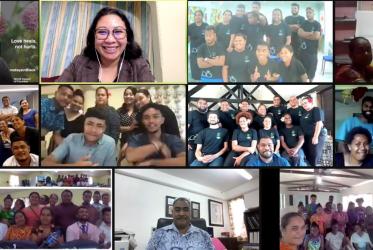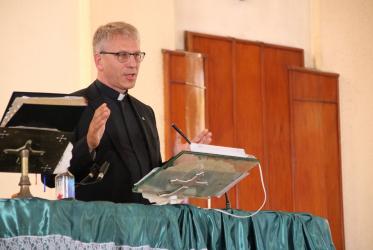Displaying 1 - 18 of 18
WCC Eco-School 2021 for Pacific region on Water, Food and Climate Justice
22 - 28 February 2021
CCIA meets in Brisbane with focus on Pacific regional priorities
19 February 2020
In Fiji, “time to go beyond the reef”
14 August 2017
Bells ring a wake-up call for climate justice
14 December 2009
WCC Pacific members request solidarity
18 February 2005
Kobia issues two challenges to Australian Christians
12 July 2004
April 2004
25 March 2004










